How do shippers feel about autonomous trucks?
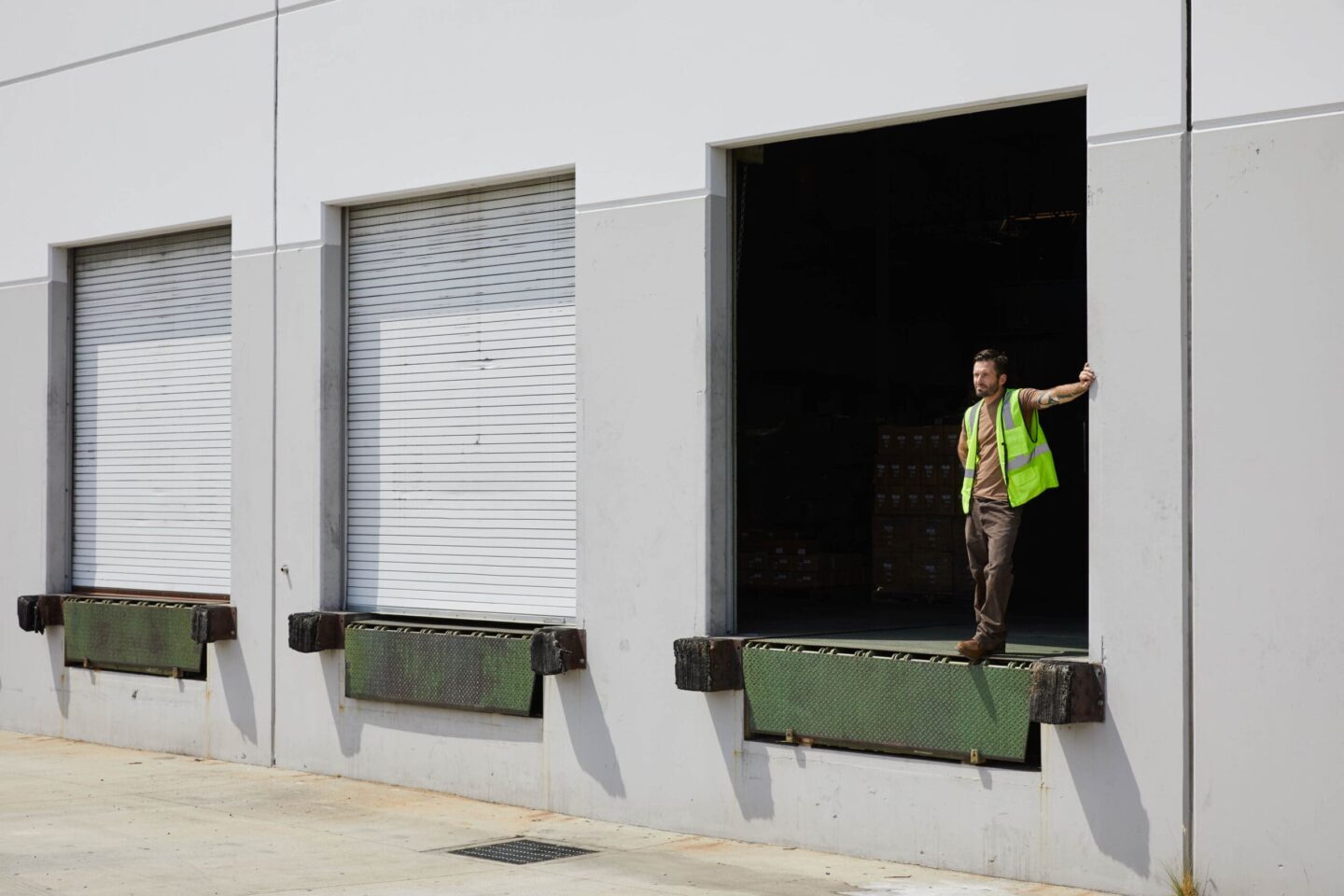
Autonomous trucks are set to augment the freight and logistics landscape. Uber Freight’s vision for the future of autonomous trucks is anchored by a digital hybrid network where shippers have access to self-driving and human-driven trucks that operate side by side on US roads. This model will address the freight industry’s labor shortages and supply chain woes while catering to capacity needs and boosting sustainability.
But how, exactly, do shippers feel about autonomous trucks becoming more accessible in the future? We surveyed nearly 50 shippers to understand how likely they’ll be to use autonomous truck solutions in the future, as well as their expected benefits for adopting those solutions. Here’s a snapshot of what they told us:
The likelihood of future adoption
Overall, shippers are excited about the prospect of using autonomous trucks. Three-quarters of respondents (76%) said they were extremely likely or somewhat likely to consider an autonomous freight solution in the future.
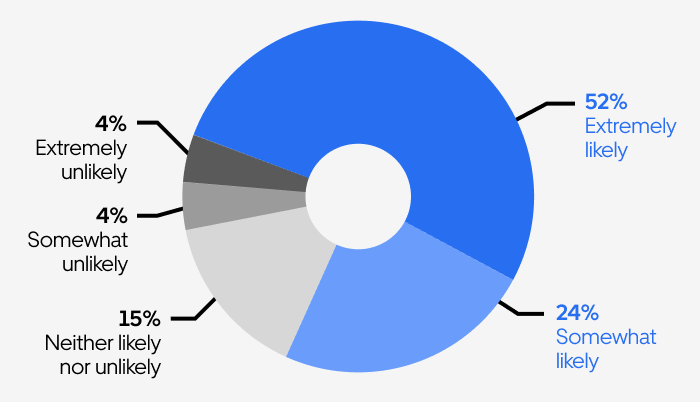
Anticipating benefits and concerns
The benefits and concerns around autonomous truck adoption are evident and, in some cases, the same. Based on qualitative responses, shippers said their primary concerns are the safety and reliability of autonomous trucks, as well as questions of who’s liable if an autonomous truck gets into an accident. Of the potential benefits of autonomous truck adoption, respondents also cited better on-road safety, as there would be less potential for accidents caused by human drivers.
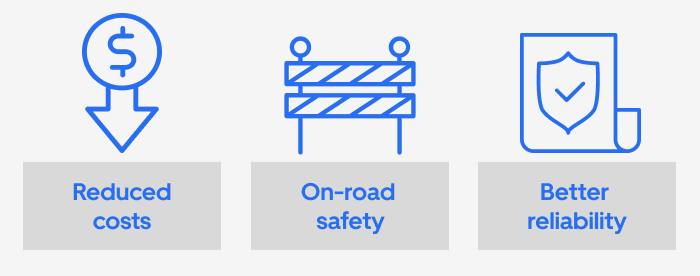
Shippers said reduced costs and better reliability are the most important benefits of autonomous truck adoption. Qualitatively, one of the most frequent responses was increased market capacity, aligning with the hybrid network’s potential to fill the gaps of the trucking industry’s labor shortage. Additional responses included reducing greenhouse gas emissions, as driverless trucks can travel during off-peak hours and use braking more efficiently than human drivers.
Adjusting budgets
While reduced costs is an expected benefit of autonomous trucks, half of respondents would still be willing to pay more for autonomous trucks than human-driven trucks, if they are proven to offer advantages such as safety and reliability. The other half of our survey pool would be willing to pay the same price as human drivers.
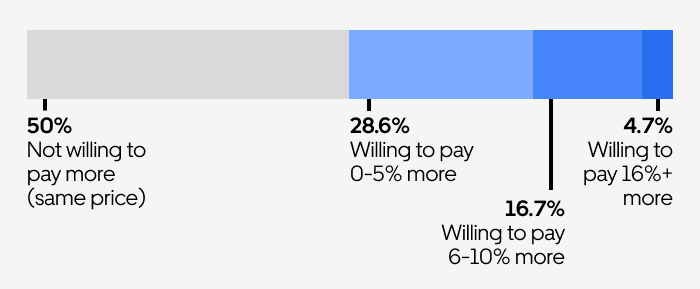
Adapting shipping operations for autonomous trucks
A future where autonomous trucks are commonplace will require many changes, both to key elements of freight transport and to facility operations. Despite one hesitancy around cost changes, our respondents are mostly willing to make the necessary accommodations to support autonomous truck integration.
More than half of the surveyed shippers are unlikely to accommodate lighter cargo for autonomous trucks, as it could increase shipping costs.
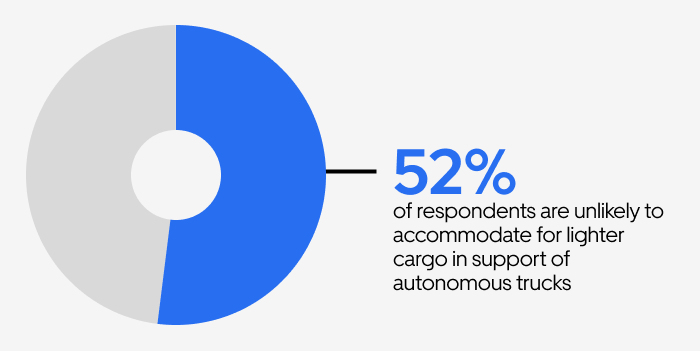
Concurrently, many of our respondents are prepared to make changes at their facilities to support autonomous trucks, especially around drop trailer capabilities and digitizing documentation.
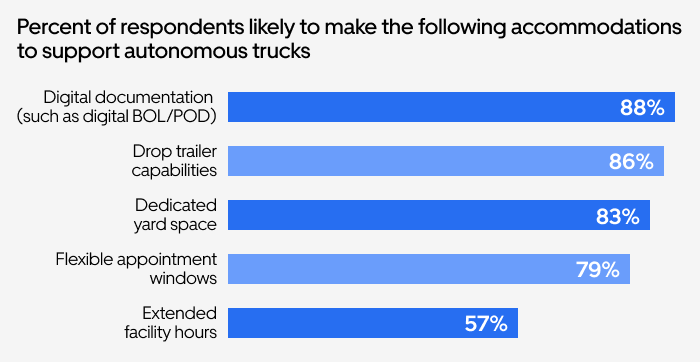
Overall, our survey suggests that a substantial number of shippers are excited to use autonomous trucks in the future, and they are asking important questions about the safety of autonomous trucks and their impact on business operations. This tells us that shippers are genuinely invested in the continued emergence of self-driving technology and its potential impact on the future of freight.
Download the full infographic to view our key survey insights.



